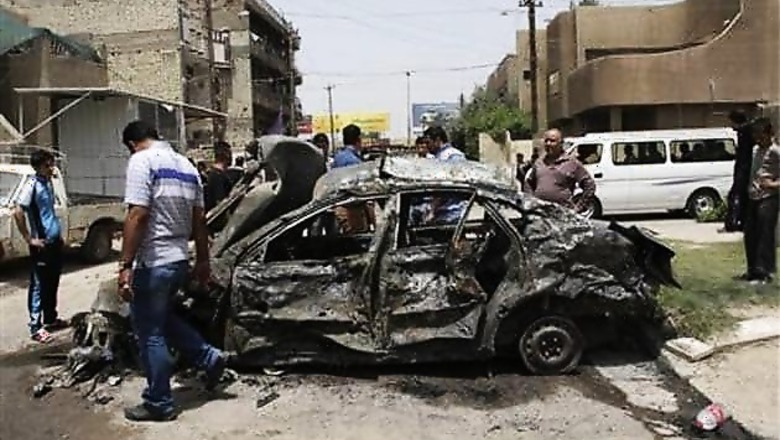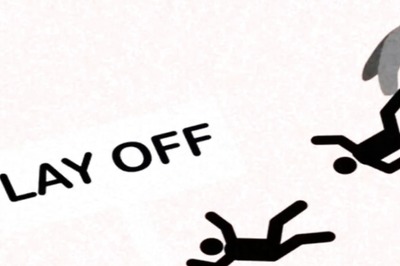
views
Baghdad: A series of bombs battered Shi'ite and Sunni Muslim neighborhoods across Baghdad on Thursday, killing at least 25 people in the worst wave of sectarian violence since civil war five years ago.
The bloodletting reflects increasing conflict between Iraq's majority Shi'ite leadership and the Sunni minority, many of whom feel unfairly marginalized since the 2003 fall of strongman Saddam Hussein, a Sunni.
The latest surge in violence began in April when Iraqi forces raided a Sunni protest camp in the northern town of Hawija, angering Sunni leaders and triggering clashes that spread across the country.
Civil war in Syria between Sunni rebels and President Bashar al-Assad, whose Alawite sect derives from Shi'ite Islam, has aggravated the strife in Iraq. Sunni and Shi'ite Iraqis have been crossing the border to fight on opposing sides in Syria.
No group claimed responsibility for Thursday's attacks, but Sunni Islamist insurgents and al Qaeda's Iraqi wing have increased their operations since the beginning of the year as part of a campaign to exacerbate inter-communal tensions.
The violence prompted the United Nations envoy in Baghdad to warn about the risk of a broader confrontation if the country's political leadership does not negotiate to ease sectarian tensions at the heart of the crisis.
"Systemic violence is ready to explode at any moment if all Iraqi leaders do not engage immediately to pull the country out of this mayhem," United Nations representative Martin Kobler said.
Early on Thursday, a car bomb exploded in the mainly Sunni district of Binoog in north Baghdad, killing at least four people. Throughout the day, at least six more bombs killed another 20 people in mainly Shi'ite and Sunni districts across the capital, police said.
Most of the victims were civilians, but soldiers and police were also targeted in the car bomb and roadside bomb attacks that hit north, south and central Baghdad.
A further seven people, including three policemen, were killed in clashes between gunmen and security forces in the northern city of Mosul, and two bombs killed four more in the town of Tal Afar.
SUNNIS DIVIDED
The Sunni governors of Anbar and Salahuddin provinces escaped assassination attempts unhurt on Thursday when their convoys were attacked with car bombs. The two men have been cooperating with Shi'ite Prime Minister Nuri al-Maliki in an effort to defuse Sunni discontent.
More than 1,100 people have been killed since April, raising the risk of a relapse into outright sectarian warfare of the kind that killed thousands of people in 2006-2007.
Attempts to ease the political crisis have been hampered by deep divisions among Sunni leaders. Moderates who favor negotiations have sometimes been attacked by hardliners and insurgents who oppose Maliki.
Security officials blame Sunni Islamists and al Qaeda's local wing, the Islamic State of Iraq, for most of the violence.
Thousands of Sunnis have protested weekly in the streets in western provinces since December, and the country's government - split among Shi'ite, Sunni and ethnic Kurds - is locked in disputes over how to share power.
Many Sunnis feel sidelined since the Shi'ite majority rose to power through elections, and say their sect has been mistreated by Shi'ite-dominated security forces who use tough anti-terrorism laws unfairly against them.



















Comments
0 comment